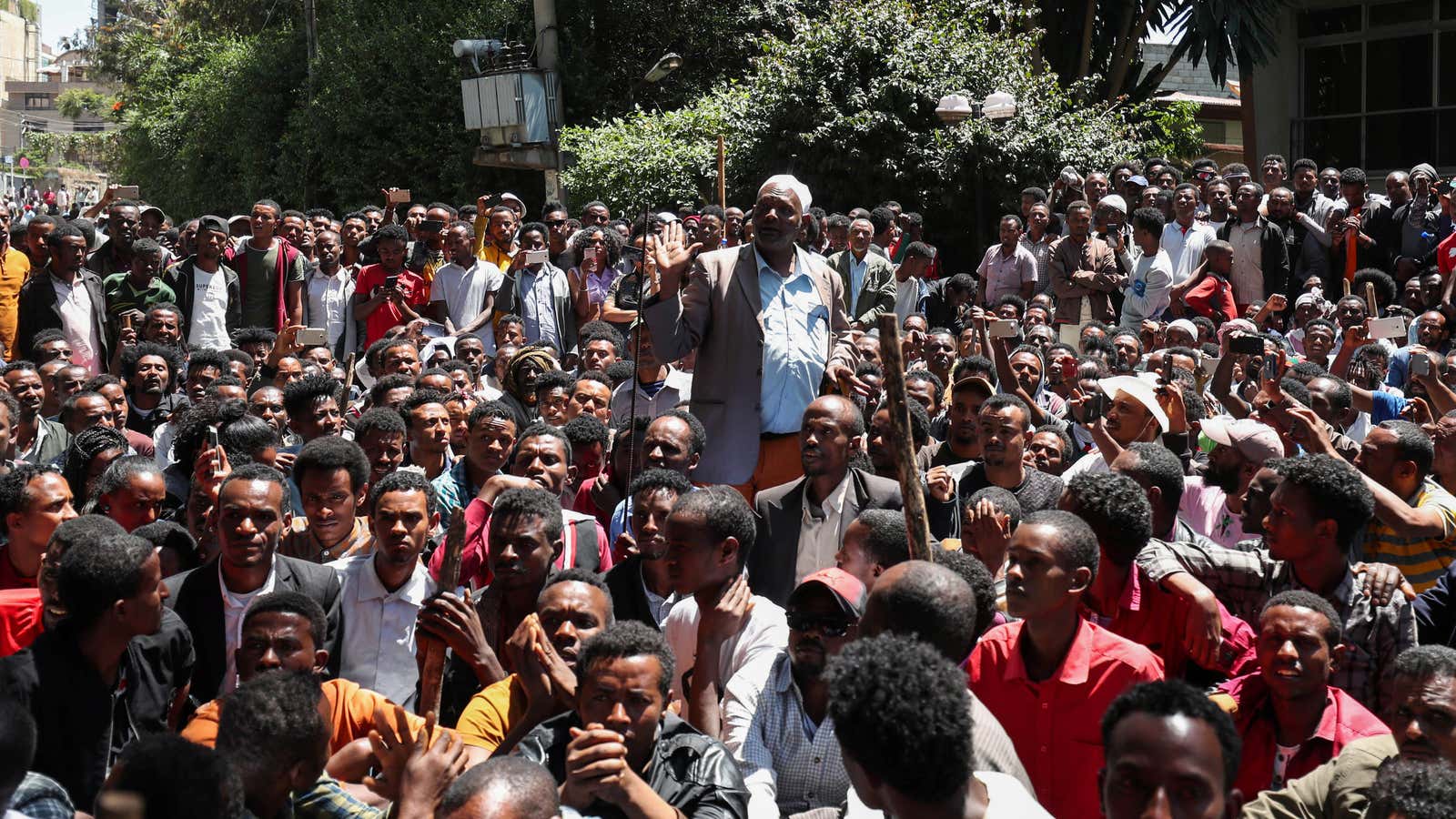The shooting of Hachalu Hundesa on Monday night in Addis Ababa has shocked the nation, as millions of Ethiopians woke up to the news of the iconic Oromo singer song writer’s murder.
The shooting took place around 9:30 pm local time in the city’s Kality area. Addis Ababa Police said a number of suspects have been detained and that an investigation is ongoing. Thousands of outraged fans across the country have taken to the streets demanding justice. In an attempt to quell the riots and prevent news coverage of them, the Ethiopian government has shut down internet services nationwide.
Outraged fans have clashed with police in several Ethiopian cities and seven people have died in the chaos thus far. Protests are confirmed to be taking place as far away as the city of Harar, 516 kilometers east of Addis Ababa.
Even though the internet has played a decisive role in transforming the lives of millions in Ethiopia, the current and previous governments have taken to regularly demanding the state telecoms monopoly to shut down the internet during security incidents, for example, recently in the Wollega province of the Oromia region.
With a growing use of internet-based services from banking to commodity exchanges, the shutdowns have come at immense economic cost. It’s estimated that the month-long shutdown in 2016 under prime minister Desalegn cost the country $8 million. The two-week blackout in 2019 under current prime minister Abiy Ahmed is estimated to have cost the country $66.87 million.
Protesting Hachalu
For those who took to the streets, Hachalu was more than just a musician. He was an outspoken revolutionary who used his lyrics to echo the plight of Ethiopia’s long marginalized Oromo people. As such, for the ethnic Oromo, who form just over a third of Ethiopia’s 110 million-strong population, Hachalu was enshrined as a symbol of defiance and resistance.
Hachalu’s lyrics and voice, written in his native Afaan Oromo tongue, garnered him nationwide fame and sold out concerts across Ethiopia and North America whenever he toured. But by far, his most popular single is Maalan Jira, which translates loosely to “what existence is mine.” The song, which describes the displacement of Oromos, resonated at the time of its June 2015 release when the Oromo were campaigning against the planned expansion of the Ethiopian capital Addis Ababa.
The relevance of Maalan Jira’s message resonated with protesters who only months later, launched the 2015-16 uprisings that would eventually force the resignation of prime minister Hailemariam Desalegn. It paved the way for Abiy, an Oromo himself, to ascend to the throne and implement the reform protesters across Ethiopia had demanded.
For renowned rights advocate Fatuma Bedhaso, who was a friend of Hachalu’s and is herself of Oromo ancestry, the loss of someone she refers to as the voice of her generation, is particularly painful.
“Hachalu weaved our sorrows and hopes together through his art and quite literally provided us with a road map,” she told Quartz Africa. “He did that with Maalan Jira, the soundtrack of the Oromo protest movement.”
Further endearing Hachalu to the masses, was his refusal to compromise on his beliefs. He remained an outspoken activist and human rights advocate until the very end, despite his success as an artist. In his final interview before his death, he lashed out at prime minister Abiy, likely out of frustration over reports of killings carried out against civilians, by Ethiopian army forces fighting a separatist militia in southern and western Oromia.
Sign up to the Quartz Africa Weekly Brief here for news and analysis on African business, tech and innovation in your inbox
